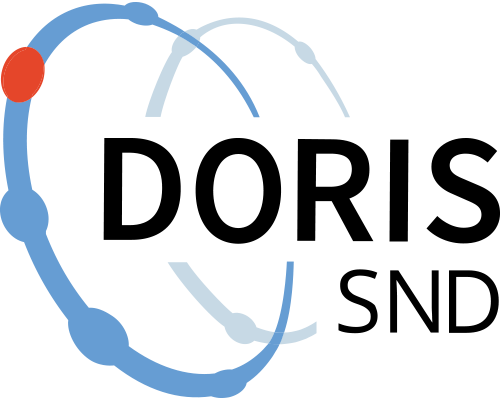Sweden now 1978-I
https://doi.org/10.5878/002472
In the mid-1960s, Testologen AB, in collaboration with a group of advertisers, introduced a new survey format that involved collecting target group data - socio-economic data, interests, purchasing habits, holdings, purchasing intentions, etc. - and reading habits data in one and the same survey. The surveys are called 'Sweden Now', but the data bank is marketed under the name ORVESTO. The name ORVESTO indicates the aim of covering many media groups: OR as in the organisational press, VE as in the weekly press and STO as in the metropolitan press. ORVESTO surveys covering a twenty-year period, 1972-1991, are available at SND.
In the 1978 survey, respondents were asked to state their reading habits regarding fifteen different daily newspapers, weekdays and weekends respectively. They were also asked to state their reading habits regarding almost fifty newspapers from the weekly and monthly press. Other questions were about the household's ownership of a number of capital goods such as a car, camera, projector, washing machine, dishwasher, etc., and whether there were dogs, cats, aquarium fish or caged birds in the household. A group of questions was about purchasing habits and purchasing intentions for a number of products. A number of questions about personal interests were introduced with "Human interests are different. How interested are you in the following subjects and activities?" The respondent was then asked how interested he/she is in buying food, cooking, having guests, leisure activities, etc. There is information on the respondent's gender, marital status, age, income, occupation, education and residence as well as on the size of the household, age structure and total household income. Sweden Now 1978 is almost a complete replication of the previous year. A novelty for this survey is that the respondents were asked to state whether they agreed or disagreed with a number of statements about lifestyle. The number of questions about how often different stores are visited has been increased, while the questions about decision-making rights in the household have been removed.
Documentation files
Documentation files
Citation and access
Citation and access
Data access level:
Creator/Principal investigator(s):
- Testologen Ltd.
Research principal:
Data contains personal data:
No
Citation:
Language:
Method and outcome
Method and outcome
Data collection - Self-administered questionnaire: Paper
Data collection - Self-administered questionnaire: Paper
Data collection - Self-administered questionnaire: Paper
Data collection - Self-administered questionnaire: Paper
Data collection - Self-administered questionnaire: Paper
Data collection - Self-administered questionnaire: Paper
Geographic coverage
Geographic coverage
Topic and keywords
Topic and keywords
Relations
Relations
Publications
Publications
Metadata
Metadata
Version 1.0

IMU-Testologen AB